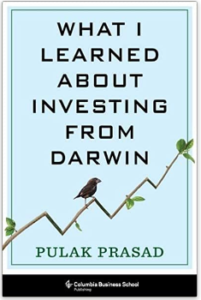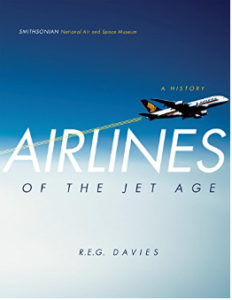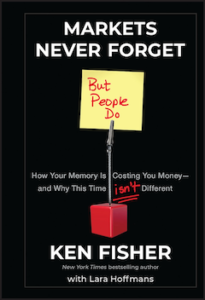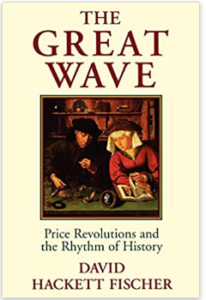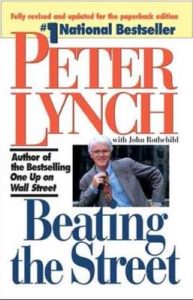Almost a year ago, billionaire hedge fund manager Ray Dalio published a book titled Principles for Dealing with the Changing World Order (2021) and then followed it up in March 2022 with a well-produced 43-minute YouTube video (link) that has so far clocked an impressive 23 million views, and inspired 32 thousand comments. Dalio’s thesis is that the American Empire is following in the footsteps of other great empires when they were in decline.
Starting with the premise that no empire lasts forever, he profiles how empires rose and fell in the past before predicting that America will be unseated by China in the new world order. I have no doubt that Dalio and his staff have done their homework, but I don’t agree with his framework nor his call. He downplays the differences with the past to focus on the similarities. Much like he did the first time, when he wrongly proclaimed that the world order would change in the early 1980s, he data mines for patterns to fit his pre-conceived thesis.
In my opinion, Dalio’s way of thinking misses the notion that history is path dependent. Europe would likely not have started World War I if it weren’t for the scars left by the Thirty Years War almost four centuries earlier. The Thirty Years War would likely not have happened if it wasn’t for the fall of Rome in the 400s. But an even more serious flaw, in my opinion, is the sense of urgency which Dalio builds around his prediction about a trajectory for which the timing is simply unknowable. He even observes that “great empires of the past have lasted roughly 250 years” before adding “give or take 150 years” – but then he uses this data to make short term-macro calls on currencies and rates.
Some of his claims, such as the fact that the average American is losing intellectual ground to the average Chinese, or that America is being hurt by rising political polarization, are hard to refute – unless one recognizes that its rarely about the averages. The video shows many waves converging in the background, so as to suggest that Dalio has cracked the code, but I’m pretty sure he hasn’t. Aside from the fact that it comes from a famous hedge fund manager, there isn’t much that’s new from Dalio’s attempts at predicting the future, because, in the end, nobody can really know these things – and nobody ever has, no matter what their AUM and the number of people crunching the numbers.
Henry Kissinger’s page-turner, which he titled World Order (2014), offered a better and more detailed review of how history can be used to understand geopolitical risks. Tocqueville, Galbraith, and Schlesinger are also great sources. But my favorite was George Friedman’s The Next 100 Years (2009). At around the same time that Dalio was calling for the end of American history, George Friedman was predicting another century of American dominance. Unlike Dalio, who feels the need to frequently remind the reader of his credentials, Friedman shows humility by stating that “when it comes to the future, the only thing one can be sure of is that common sense will be wrong,” and that, “things that appear to be so permanent and dominant at any given moment in history can change with stunning rapidity.”
With the typical caveats out of the way, Friedman compares America not with the failing empires of the past, but with an adolescent: “For the short term—and by that I mean the next hundred years—I will argue that the United States’ power is so extraordinarily overwhelming, and so deeply rooted in economic, technological, and cultural realities, that the country will continue to surge through the twenty-first century, buffeted though it will be by wars and crises. This isn’t incompatible with American self-doubt. Psychologically, the United States is a bizarre mixture of overconfidence and insecurity. Interestingly, this is the precise description of the adolescent mind, and that is exactly the American condition in the twenty-first century. The world’s leading power is having an extended adolescent identity crisis, complete with incredible new strength and irrational mood swings. … if we think of the United States as an adolescent, early in its overall history, then we also know that, regardless of its self-image, adulthood lies ahead. Adults tend to be more stable and more powerful than adolescents. Therefore, it is logical to conclude that America is in the earliest phase of its power.”
Friedman’s book points to the poor record of Dalio’s fatalistic conclusions. “There is a deep-seated belief in America,” Friedman writes, “that the United States is approaching the eve of its destruction. Disastrous wars, uncontrolled deficits, high gasoline prices, shootings at universities, corruption in business and government, and an endless litany of other shortcomings—all of them quite real—create a sense that the American dream has been shattered and that America is past its prime. If that doesn’t convince you, listen to Europeans. They will assure you that America’s best day is behind it. The odd thing is that all of this foreboding was present during the presidency of Richard Nixon, together with many of the same issues. … But the fact is that the United States is stunningly powerful. It may be that it is heading for a catastrophe, but it is hard to see one when you look at the basic facts. … There are many answers to the question of why the U.S. economy is so powerful, but the simplest answer is military power. The United States completely dominates a continent that is invulnerable to invasion and occupation and in which its military overwhelms those of its neighbors. Virtually every other industrial power in the world has experienced devastating warfare in the twentieth century. The United States waged war, but America itself never experienced it. Military power and geographical reality created an economic reality. Other countries have lost time recovering from wars. The United States has not. It has actually grown because of them.”
One of George Friedman’s predictions (which is now 13 years old), was that the US would have problems with Russia well into the 21st century. He observed that “the Russians can’t avoid trying to reassert power, and the United States can’t avoid trying to resist.” Given how many of Friedman’s other predictions have been spot on, it is reassuring that he concluded that “Russia can’t win.”
Friedman also disagrees with Dalio on China: “There are many who predict that China is the next challenger to the United States, not Russia. I don’t agree with that view for three reasons. First, when you look at a map of China closely, you see that it is really a very isolated country physically. With Siberia in the north, the Himalayas and jungles to the south, and most of China’s population in the eastern part of the country, the Chinese aren’t going to easily expand. Second, China has not been a major naval power for centuries, and building a navy requires a long time not only to build ships but to create well-trained and experienced sailors.”
For those (like me) who worry about the risk that a crazy man, when trapped, might push the nuclear button – here is another precious passage from Friedman’s book: “Geopolitics and economics both assume that the players are rational, at least in the sense of knowing their own short-term self-interest. As rational actors, reality provides them with limited choices. It is assumed that, on the whole, people and nations will pursue their self-interest, if not flawlessly, then at least not randomly. Think of a chess game. On the surface, it appears that each player has twenty potential opening moves. In fact, there are many fewer because most of these moves are so bad that they quickly lead to defeat. The better you are at chess, the more clearly you see your options, and the fewer moves there actually are available. The better the player, the more predictable the moves. The grandmaster plays with absolute predictable precision—until that one brilliant, unexpected stroke. Nations behave the same way. The millions or hundreds of millions of people who make up a nation are constrained by reality. They generate leaders who would not become leaders if they were irrational. Climbing to the top of millions of people is not something fools often do. Leaders understand their menu of next moves and execute them, if not flawlessly, then at least pretty well. An occasional master will come along with a stunningly unexpected and successful move, but for the most part, the act of governance is simply executing the necessary and logical next step. When politicians run a country’s foreign policy, they operate the same way. If a leader dies and is replaced, another emerges and more likely than not continues what the first one was doing.”
Back to Dalio, I recall well the long interview he did with Baron’s near the historic bottom in 2009. He predicted then, with eloquence and persuasiveness, that the global economy was in a deflationary bust. Then in mid-2010, as the Fed began its quantitative easing campaign, he predicted that the dollar would collapse. He brags in his book that he made money in 2008 thanks to his time-tested “principles,” but that did not help the millions of unsuspecting readers who got talked out of investing in U.S. stocks at what turned out to be generational lows. Dalio’s financial dreams came true despite his propensity to predict Armageddon over the years, but that does not make him a good source for advice, in my opinion, near market bottoms. Everyone is entitled to their opinions, but the best ones don’t tend to get 23 million views. As Buffett warned in his letter to shareholders dated February 27, 2009, “beware the investment activity that produces applause; the greatest moves are usually greeted by yawns.”





